Lexus LBX vs VW T-Cross - Differences and prices compared
Costs and Efficiency:
Looking at overall running costs, both models reveal some interesting differences in everyday economy.
VW T-Cross has a clearly perceptible advantage in terms of price – it starts at 21100 £, while the Lexus LBX costs 28300 £. That’s a price difference of around 7200 £.
Fuel consumption also shows a difference: Lexus LBX manages with 4.50 L and is therefore clearly perceptible more efficient than the VW T-Cross with 5.40 L. The difference is about 0.90 L per 100 km.
Engine and Performance:
Power, torque and acceleration say a lot about how a car feels on the road. This is where you see which model delivers more driving dynamics.
When it comes to engine power, the VW T-Cross has a hardly perceptible edge – offering 150 HP compared to 136 HP. That’s roughly 14 HP more horsepower.
In acceleration from 0 to 100 km/h, the VW T-Cross is slight quicker – completing the sprint in 8.40 s, while the Lexus LBX takes 9.20 s. That’s about 0.80 s faster.
In terms of top speed, the VW T-Cross performs slightly better – reaching 200 km/h, while the Lexus LBX tops out at 170 km/h. The difference is around 30 km/h.
There’s also a difference in torque: VW T-Cross pulls distinct stronger with 250 Nm compared to 185 Nm. That’s about 65 Nm difference.
Space and Everyday Use:
Cabin size, boot volume and payload all play a role in everyday practicality. Here, comfort and flexibility make the difference.
Seats: offers more seating capacity – vs .
In curb weight, VW T-Cross is slight lighter – 1267 kg compared to 1280 kg. The difference is around 13 kg.
In terms of boot space, the VW T-Cross offers clearly perceptible more room – 455 L compared to 332 L. That’s a difference of about 123 L.
In maximum load capacity, the VW T-Cross performs noticeable better – up to 1281 L, which is about 287 L more than the Lexus LBX.
When it comes to payload, VW T-Cross minimal takes the win – 480 kg compared to 475 kg. That’s a difference of about 5 kg.
Who wins the race?
The VW T-Cross proves to be wins the duel decisively and therefore becomes our DriveDuel Champion!
VW T-Cross is the better all-rounder in this comparison.
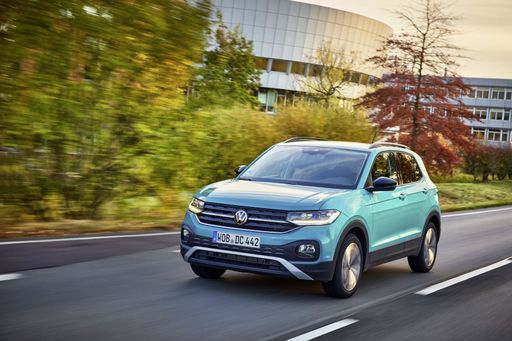 @ Volkswagen AG / VW Media
@ Volkswagen AG / VW Media
VW T-Cross
Costs and Consumption
View detailed analysis
Engine and Performance
View detailed analysis
Dimensions and Body
View detailed analysis
Lexus LBX
The Lexus LBX wraps premium touches and a surprisingly spacious cabin into a compact crossover that’s perfectly at home in town or heading out on longer drives. It wears the badge with quiet confidence, serving up a refined ride and clever packaging for buyers who want Lexus polish without shouting for attention.
details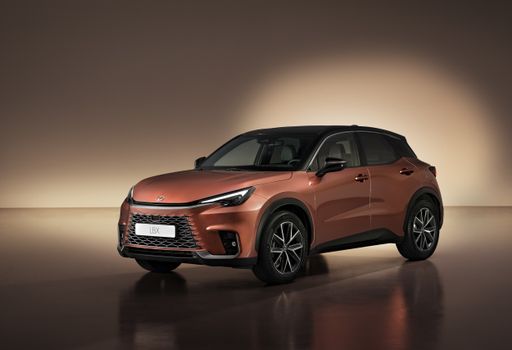 @ Lexus / Toyota Motor Corporation
@ Lexus / Toyota Motor Corporation
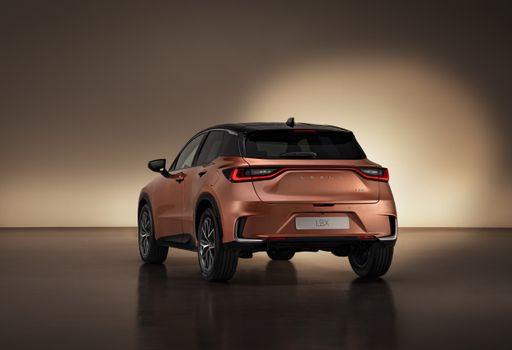 @ Lexus / Toyota Motor Corporation
@ Lexus / Toyota Motor Corporation
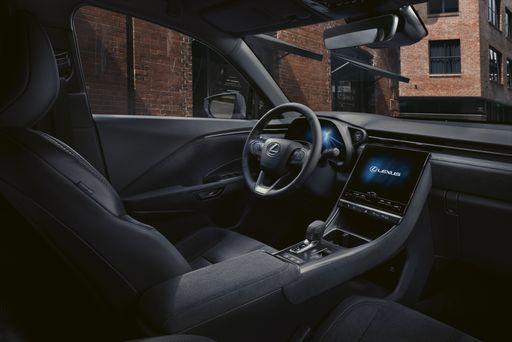 @ Lexus / Toyota Motor Corporation
@ Lexus / Toyota Motor Corporation
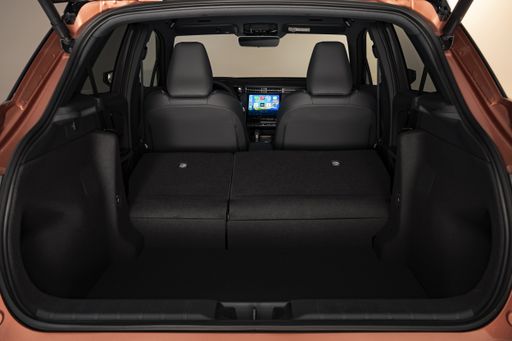 @ Lexus / Toyota Motor Corporation
@ Lexus / Toyota Motor Corporation
VW T-Cross
The VW T-Cross turns everyday practicality into a style statement, offering a roomy-feeling cabin, clever storage and playful design that suits town life and family duties alike. On the road it's composed and relaxed, rewarding buyers who want the raised seating and confident presence of an SUV without the weighty compromises.
details @ Volkswagen AG / VW Media
@ Volkswagen AG / VW Media
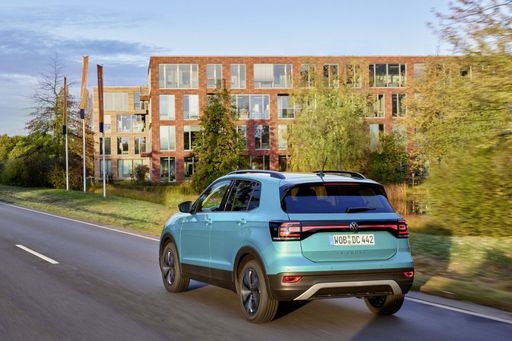 @ Volkswagen AG / VW Media
@ Volkswagen AG / VW Media
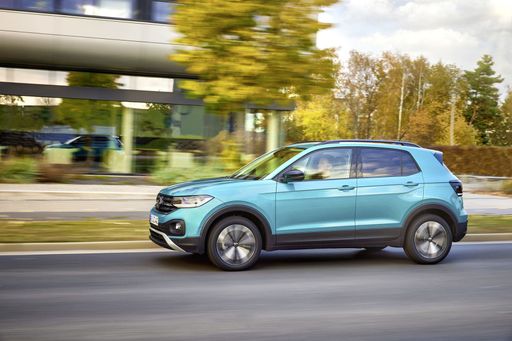 @ Volkswagen AG / VW Media
@ Volkswagen AG / VW Media
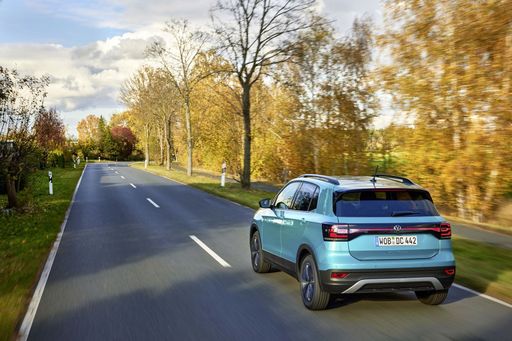 @ Volkswagen AG / VW Media
@ Volkswagen AG / VW Media
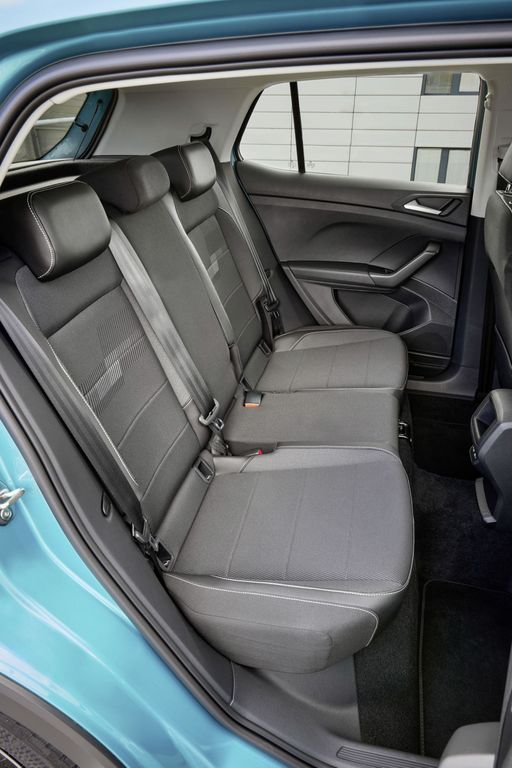 @ Volkswagen AG / VW Media
@ Volkswagen AG / VW Media
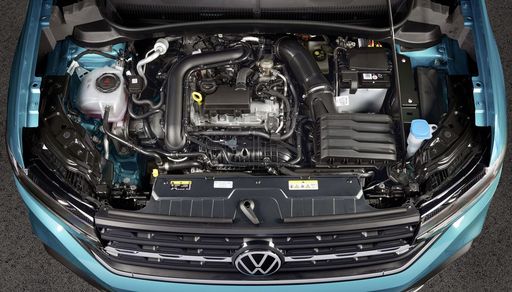 @ Volkswagen AG / VW Media
@ Volkswagen AG / VW Media
 @ Lexus / Toyota Motor Corporation
@ Lexus / Toyota Motor Corporation
|
 @ Volkswagen AG / VW Media
@ Volkswagen AG / VW Media
|
|
|
|
Costs and Consumption |
|
|---|---|
|
Price
28300 - 40000 £
|
Price
21100 - 31500 £
|
|
Consumption L/100km
4.5 - 4.8 L
|
Consumption L/100km
5.4 - 6 L
|
|
Consumption kWh/100km
-
|
Consumption kWh/100km
-
|
|
Electric Range
-
|
Electric Range
-
|
|
Battery Capacity
-
|
Battery Capacity
-
|
|
co2
102 - 110 g/km
|
co2
124 - 136 g/km
|
|
Fuel tank capacity
36 L
|
Fuel tank capacity
40 L
|
Dimensions and Body |
|
|---|---|
|
Body Type
SUV
|
Body Type
SUV
|
|
Seats
5
|
Seats
5
|
|
Doors
5
|
Doors
5
|
|
Curb weight
1280 - 1365 kg
|
Curb weight
1267 - 1338 kg
|
|
Trunk capacity
255 - 332 L
|
Trunk capacity
455 L
|
|
Length
4190 mm
|
Length
4127 mm
|
|
Width
1825 mm
|
Width
1784 mm
|
|
Height
1560 mm
|
Height
1573 mm
|
|
Max trunk capacity
992 - 994 L
|
Max trunk capacity
1281 L
|
|
Payload
455 - 475 kg
|
Payload
463 - 480 kg
|
Engine and Performance |
|
|---|---|
|
Engine Type
Full Hybrid
|
Engine Type
Petrol
|
|
Transmission
Automatic
|
Transmission
Manuel, Automatic
|
|
Transmission Detail
CVT
|
Transmission Detail
Manual Gearbox, Dual-Clutch Automatic
|
|
Drive Type
Front-Wheel Drive, All-Wheel Drive
|
Drive Type
Front-Wheel Drive
|
|
Power HP
136 HP
|
Power HP
95 - 150 HP
|
|
Acceleration 0-100km/h
9.2 - 9.6 s
|
Acceleration 0-100km/h
8.4 - 11.3 s
|
|
Max Speed
170 km/h
|
Max Speed
180 - 200 km/h
|
|
Torque
185 Nm
|
Torque
175 - 250 Nm
|
|
Number of Cylinders
3
|
Number of Cylinders
3 - 4
|
|
Power kW
100 kW
|
Power kW
70 - 110 kW
|
|
Engine capacity
1490 cm3
|
Engine capacity
999 - 1498 cm3
|
General |
|
|---|---|
|
Model Year
2025
|
Model Year
2024 - 2025
|
|
CO2 Efficiency Class
C
|
CO2 Efficiency Class
D, E
|
|
Brand
Lexus
|
Brand
VW
|
What drivetrain options does the Lexus LBX have?
Available configurations include Front-Wheel Drive or All-Wheel Drive.
The prices and data displayed are estimates based on German list prices and may vary by country. This information is not legally binding.
